To help push 'chhutta' back into circulation, five top temples across Maharashtra state are told to deposit their all small denomination collections into banks every day
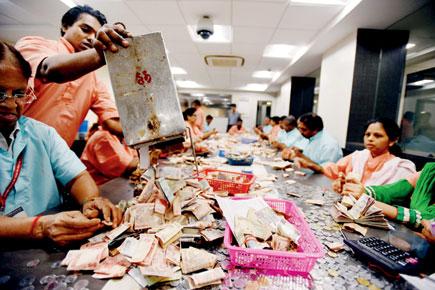
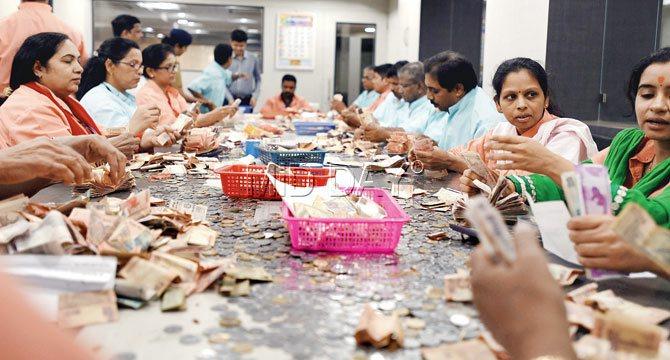
ADVERTISEMENT
Notes and coins being counted at Siddhivinayak mandir. Pic/Ashish Rane
With no sign of the confusion surrounding demonetisation abating, the government has been forced to turn to god for help. Eyeing the change that devotees drop into collection boxes at temples, the state's law and judiciary department has instructed five of Maharashtra's top mandirs, including Mumbai's famous Siddhivinayak, to deposit their cash collections at banks every single day. Earlier, this was done once a week.
A senior Mantralaya official, on condition of anonymity, said, "Temples receive huge donations. A large part of the offerings are in coins or denominations of Rs. 10, Rs. 50 or Rs. 100.
Getting this into the daily transaction system will ease some pressure on withdrawal of Rs. 500 and Rs. 1,000 notes." Siddhivinayak alone, on an average, collects around Rs. 5 lakh a day, of which 80 percent is in the form of coins and notes of Rs. 100 or less. It is the same at Shirdi, Tuljapur, Pandarphur and Mahalakshmi (Kolhapur). Sanjeev Patil, chief executive officer of Siddhivinayak temple, said, "On Wednesday, we received a circular instructing us to deposit our collections at the bank daily. We started doing this from Thursday. We will follow this practice till further instructions." Temple authorities said, around Rs. 5 lakh was deposited on Thursday.
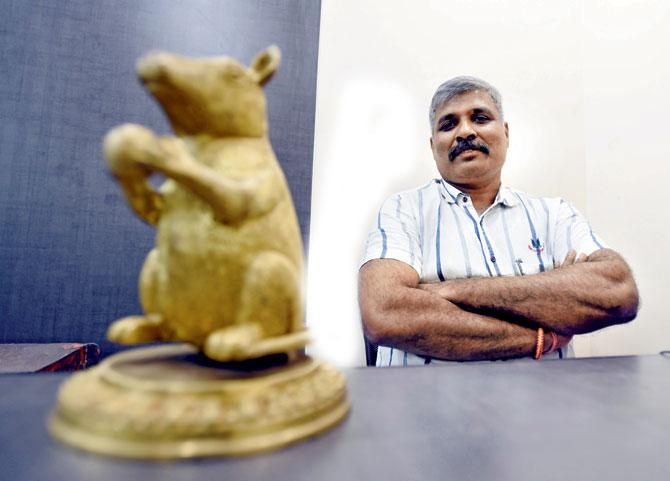
Sanjeev Patil, CEO,Siddhivinayak Temple
Banks helpless
Banks have been exchanging old notes but offering new Rs. 2,000 notes only. "The new Rs. 500 notes are not yet being dispensed at all banks. So citizens are stuck without change. If temples put their cash collection into the system, it could help ease the current crisis," said Lalji Kurmi a regular visitor at Siddhivinayak. He suggests that instead of asking temples to deposit money in the bank, government should allow temple trusts to directly give people change in exchange for new Rs. 2,000 notes. "This may help reduce queues at ATMs and banks," Kurmi said. An official attached to a private bank said, "The situation has eased slightly and will further improve with more cash coming into the system."
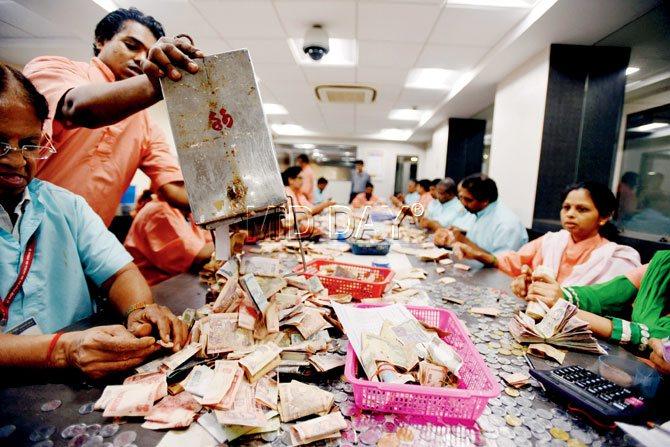
Currency notes and coins from the day’s collection being counted at Siddhivinayak mandir this week. Pic/Ashish Rane
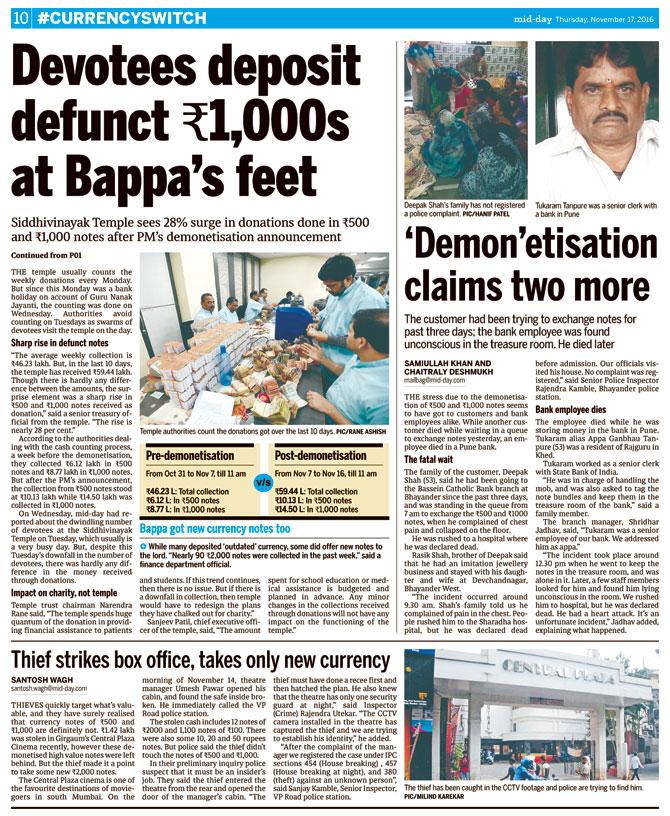
Hearts of gold
This is not the first time temples have come to the government's rescue. Last year, when PM Modi announced he wanted to reduce India's gold imports, urging temples to melt their gold donations and keep the precious metal in banks for a fixed period, temples willingly stepped forward. The government in return promised temples interest on the deposits. In fact, Siddhivinayak was the first temple to pledge its gold. The temple has already deposited 44 kg in the scheme. The gold reserve of the temple is said to be 171 kg (before it had deposited the yellow metal
in the bank).
 Subscribe today by clicking the link and stay updated with the latest news!" Click here!
Subscribe today by clicking the link and stay updated with the latest news!" Click here!






